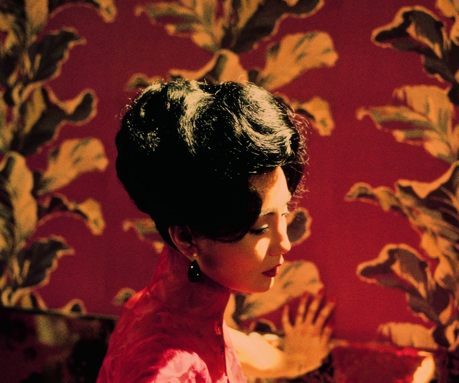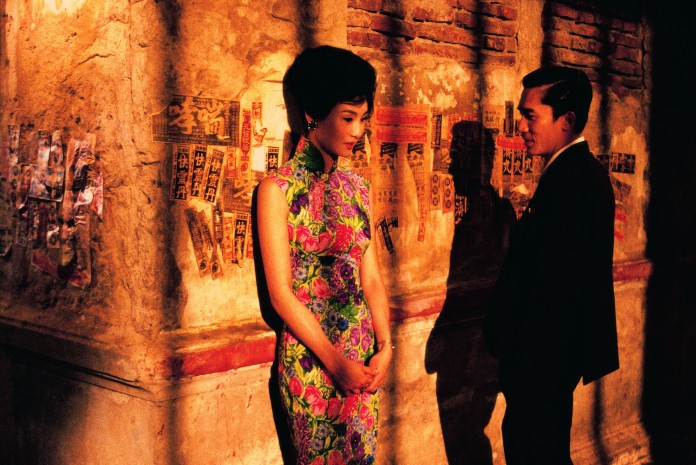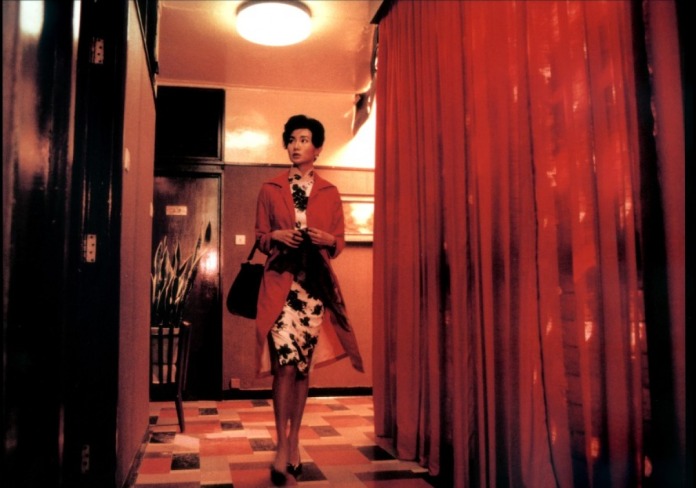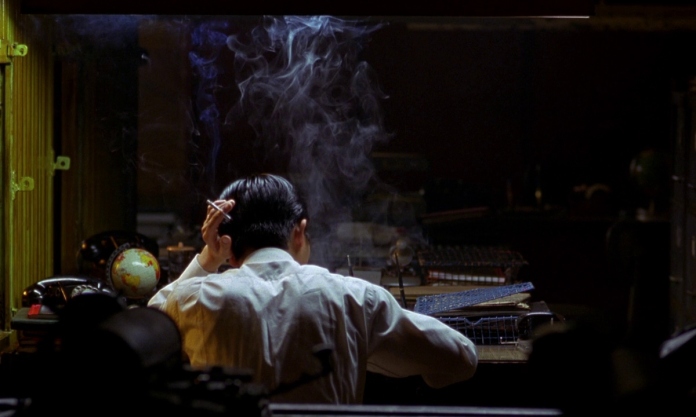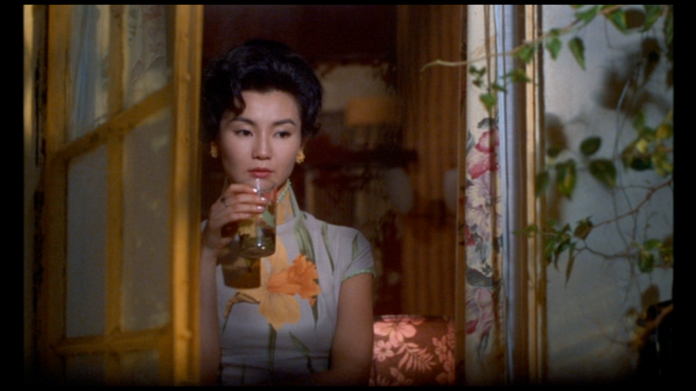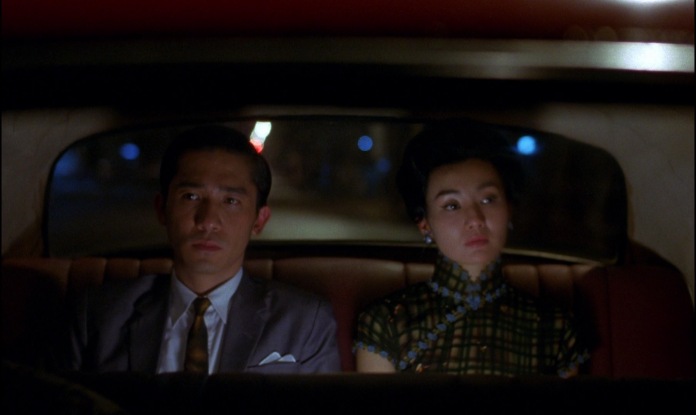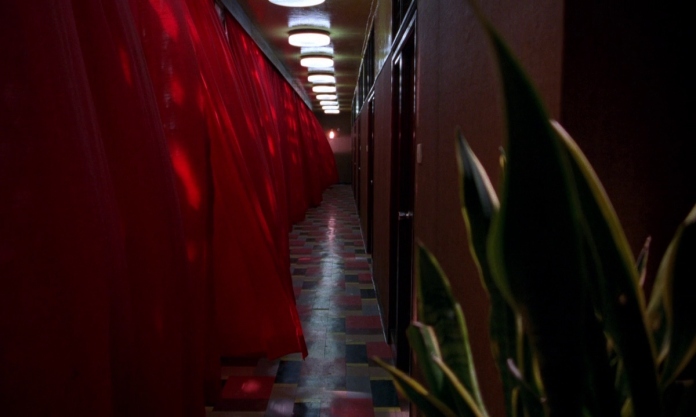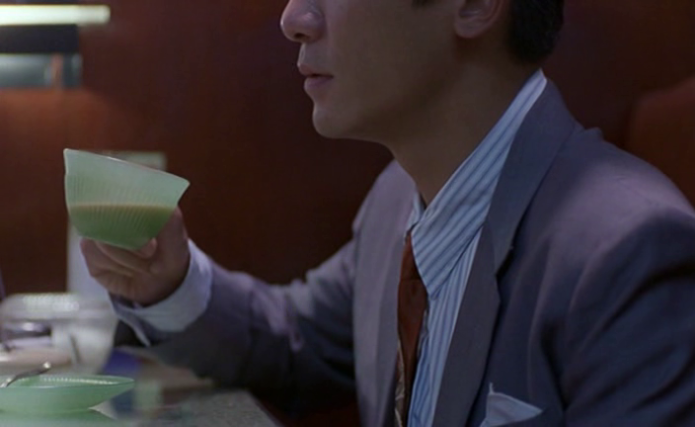I’ve been watching movies to avoid my other responsibilities lately. It’s great : )

Maggie Cheung as Li Qiao and Leon Lai as Li Xiao-jun.
Synopsis and spoiler free section:
Comrades: Almost a Love Story (1996) (Chinese: 甜蜜蜜 tián mì mì), directed by Peter Chan, is a movie about a man from Wusih (located in Northern China), named Li Xiao-jun (played by Leon Lai) who movies to Hong Kong in hopes of raising enough money to start a life there, and to bring his lover there from his hometown. Not knowing any Cantonese in a city that primarily speaks Cantonese, the happy-go-lucky Xiao-jun struggles to get a hang of the ropes there – that is, until he meets the scheming and ambitious Li Qiao (played by Maggie Cheung), who is from Guongzhou, a Cantonese speaking city in mainland China. Although their personalities and goals are completely different, they eventually form a friendship in this harsh city, by bonding through their similar circumstances, their love for the Taiwanese pop singer Teresa Teng, and their loneliness.
More than just a love story:
As the title suggests, this movie has a fair bit of romance – which was very enjoyable in this movie, don’t get me wrong – but it is about so much more than just that. Li Qiao and Xiao-jun had such great chemistry in romance, in friendship, and in their partnership. Throughout the movie, Li Qiao teaches Xiao-jun how to fit into Hong Kong; Xiao-jun shows kindness and nurturing to the often confused and frustrated Li Qiao. Throughout the movie, we see them change due to each other, and due to their environment. We see both of them switch from being strong to vulnerable, balancing each other out. The character development in this movie is so realistic, and changes so subtly that you don’t realize just how different things are from the beginning. To me, this movie is so great because of its authenticity to the complications that people at that time period in Hong Kong were facing, whether it had to do with love, friendship, trying to earn money, or just acceptance.

Li Qiao showing her vulnerable side (though this scene isn’t really related to what I was talking about above. It was just good for mood matching).
Teresa Teng!!!:
Teresa Teng (Chinese: 鄧麗君 Dèng Lìjūn) was a huge theme in this movie. The title in Chinese is named after one of Teresa Teng’s songs of the same name, and is used as a reoccurring song throughout the movie. For those of you who don’t know, Teresa Teng was a really popular pop star, coming into fame in the 1970s, up until her death due to asthma in 1995. She was popular throughout East Asia – spanning from China, to Japan, and to Thailand. She remains one of the most influential, remembered, and loved singers in China, known for her beautiful and sweet voice. In this movie, Li Qiao and Xiao-jun bond over Teresa Teng’s lovely melodies throughout the film.

Xiao-jun and Li Qiao singing “Tián Mì Mì” by Teresa Teng as they ride on Xiao-Jun’s bike together.
Recommended for:
This movie is a great film for illustrating what life was like for people in China at the time who wanted to get away from China. It was just how things happened back then – there were more opportunities elsewhere. And as I am writing this, I remember to think about my parents, who are similar in to them in this respect. Not only is it a romance movie, it is a commentary about the life and struggles of people who were in similar situations to the characters in this film, and I think it is a very realistic one at that.
The only thing is, the movie isn’t the most exciting movie. A lot happens in the movie – it spans years of their lives – but whether or not it is “exciting” or “interesting” depends on what you like. It is really a movie about life over anything else. If you don’t want to watch two hours of some people living, then this might not be for you. Also, because most people (me included) have not been through this kind of struggle, it might not really resonate with you if you aren’t interesting in these kinds of movies at all. Finally, if you don’t speak either of the languages (like you don’t know how to say anything in Cantonese or Mandarin), you will miss some subtle details about what the characters are like and how their speech changes. Oh, there are also some unbelievable coincidences in this movie that make it not so realistic – however, if you don’t suspend your disbelief at least a little while watching movies… I don’t see how you can get through most films.

This photo is kind of random; just Maggie Cheung in the movie as Li Qiao, looking beautiful as always : )
In-depth scene analysis and spoilers section:
Blah blah blah spoilers ahead. I’m going to keep this section short anyway.
Pao! (and other side characters):
I really liked the side characters added into this movie. They really made the whole movie come to life – as moving to a new place usually involves interaction with more than just one person. Pao (played by Eric Tsang) was probably the character with the third most lines. I grew to really like his character, although he came off as kind of sleazy at the beginning. He became really sweet eventually, and you could see that he really cared for Li Qiao. I was pretty sad when he died at the end, because he was someone Li Qiao really cared for too, and now she was alone again. I have to admit though, whenever I see Eric Tsang in a serious movie, it always throws me off, because I grew up watching him in Chinese variety shows. But that quickly subsided as their relationship grew.
Aside from Pao, I really enjoyed watching Xiao-jun’s interactions with the other people he met, and with the character that we met. His aunt Rosie (played by Irene Tsu) was particularly interesting, with her obsession with William Holden. The story was really sweet, and it almost brought me to happy tears as she was recalling the story in her letter/will to Xiao-jun. Rosie’s story perhaps showed kind of a romantic view of America/Americans as Hong Kong and people living in Hong Kong were getting more westernized. Aside from Aunt Rosie, I was happy to see that Xiao-jun had made some true friends throughout the movie.

Man, I cracked up when I saw this. What a cute thing to do to get a girl to smile.
TLDR; and ratings:
Recommended for: People who are interested in seeing what life was like for someone from Mainland China to go to Hong Kong to make a living in the late 80s to early 90s, someone looking for a movie about relationships with people in general
Not recommended for: People who don’t like lots of coincidences, people who are not interested in the synopsis at all (it will literally be that and not much else)
Visuals: 6.5-7/10 – Didn’t talk about this much. The movie is quite dated, so I don’t know if this rating is that accurate or if I am just focusing too much on that… But they do do some interesting shots in the film, and we do get to see some nice shots of Hong Kong (and other places). Overall though, the camera wasn’t trying to do anything too adventurous or super noteworthy.
Music: 7.5/10 – Okay I’m a bit biased about this one because I like Teresa Teng. BUT, she is kind of central to their story, and the other music used was pretty good at creating the right mood for certain scenes.
Overall: 8/10 – I really liked this movie for its realism to the subject, and it is a synopsis that interests me because I know that it is something that people in my family have faced. I loved the characters in the movie, and I thought they developed really well throughout the film. It is a must watch if you are interested in this subject at all.


